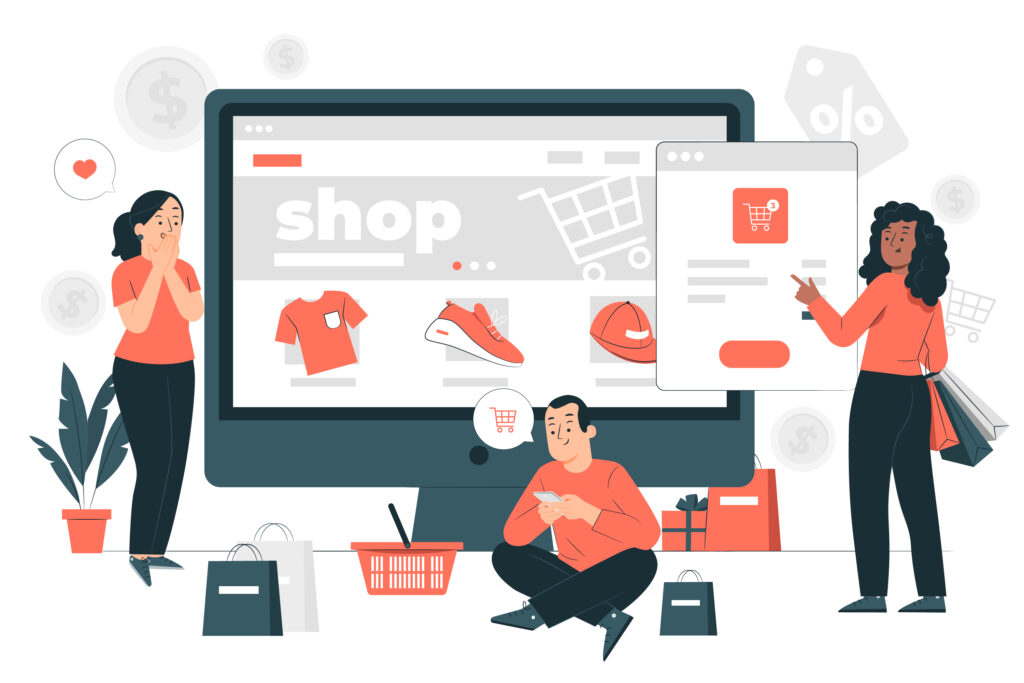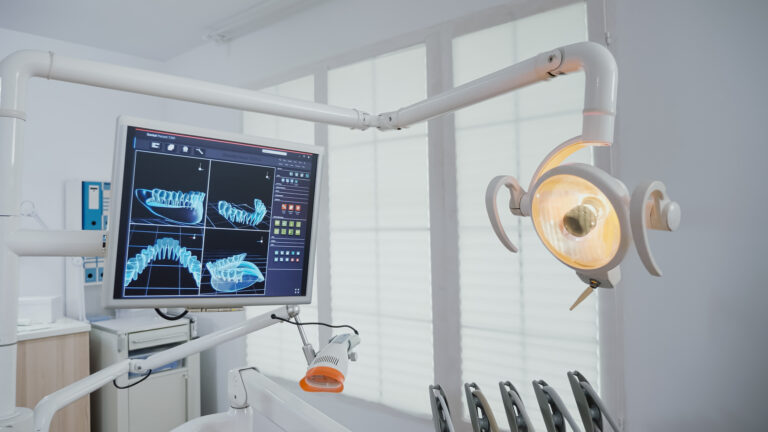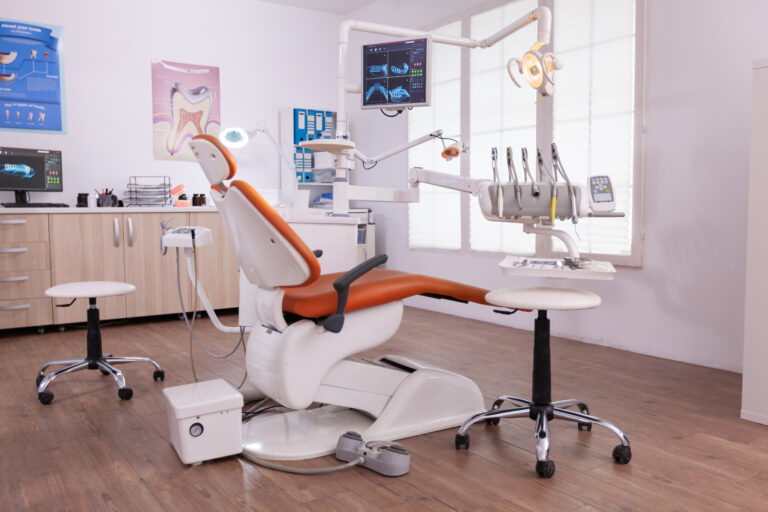Why 2025 Demands Smart Digital Tools for Medical Equipment Suppliers
Table of Contents
Introduction:
In 2025, healthcare buyers are going digital.
Clinics, labs, and hospitals increasingly prefer to order online quickly, transparently, and with multiple payment options.
If you’re a supplier of medical tools or consumables, building your own E-Commerce Store for Healthcare Supplies is no longer just an option; it’s a competitive necessity.
With margins tightening and buyer expectations rising, direct online sales help you control pricing, customer experience, and brand visibility.
More importantly, it cuts out dependency on third-party distributors or marketplaces that charge high commissions.
This guide is designed to walk Healthcare MSMEs through the entire journey from setting up a website to integrating inventory and payment systems.
Whether you sell gloves, syringes, diagnostic kits, or hospital furniture, having your own E-Commerce Store gives you control and scalability.
Let’s break down the steps to create a professional online presence that attracts clinics and labs, reduces dependency on offline sales, and boosts your recurring orders.
1. Which E-Commerce Platforms Are Best for Healthcare Suppliers in India?
When building an E-Commerce Store for Healthcare Supplies, choosing the right platform is crucial.
It directly affects your ability to manage medical tools, handle B2B orders, issue GST invoices, and serve healthcare MSMEs efficiently.
Below is a detailed comparison of the four top platforms suited for Indian suppliers:

2. What Are the Steps to Launch an E-Commerce Store for Selling Medical Equipment or Consumables?
Launching your own E-Commerce Store for Healthcare Supplies may sound technical, but with the right steps, it’s highly manageable, even for small suppliers.
Here’s a simplified breakdown:
Step 1: Choose and Register a Domain Name
Start by selecting a professional domain name. For example, MediKartPro.in or YourBrandMedSupply.com.
Use platforms like GoDaddy, Namecheap, or Hostinger to purchase it.
Keep the domain:
- Short and memorable
- Related to medical tools or healthcare MSMEs
- Easy to spell and type
Step 2: Select an E-Commerce Platform
Pick a user-friendly platform to build your store. Popular options include:
Platform | Ideal For | Features |
Shopify | Beginners, quick launch | No coding needed, secure hosting, fast setup |
WooCommerce | WordPress users, customizable sites | More control, good for SEO, cost-effective |
Zoho Commerce | Indian MSMEs | Local support, integration with Zoho apps |
Choose based on your comfort, customization needs, and product range.
Step 3: Design Your Storefront
Use templates from the platform to design your store. Focus on:
- Clear product categories (Surgical, Diagnostics, Dental, PPE)
- High-resolution images of your medical tools and packaging
- Short, informative product descriptions
- Highlight certifications like CE, ISO, CDSCO, if applicable
Step 4: Set Up Payment Gateways
You must integrate secure payment gateways to collect online payments. Popular ones include:
- Razorpay (best for Indian MSMEs)
- Cashfree
- PayU
- Stripe (for international orders)
Make sure your gateway supports UPI, credit/debit cards, net banking, and wallets.
Step 5: Enable Logistics and Shipping Integration
A smooth delivery experience builds customer trust. Choose shipping partners that can integrate directly with your store platform:
- Shiprocket – automated label generation, COD support
- Delhivery – pan-India coverage
- India Post – affordable for small packages
- Blue Dart or DTDC – for high-value equipment
Add real-time tracking to reduce buyer follow-ups.
Step 6: Add GST and Compliance
Make your store GST-compliant:
- Mention HSN codes for all medical supplies
- Display GST-inclusive pricing
- Issue e-invoices (can integrate tools like Zoho Invoice or Tally)
Step 7: Add Analytics and Chat Support
Use tools like Google Analytics, Facebook Pixel, or Microsoft Clarity to track user behavior and improve conversions.
Enable a WhatsApp chat plugin or live chat bot to answer buyer queries in real time, especially useful for B2B buyers with bulk needs.
Step 8: Launch and Test
Do a soft launch. Send the store link to known clinic or hospital buyers. Get feedback, fix bugs, and prepare for marketing.
Once tested, start promotions via:
- Social media (LinkedIn, Instagram, WhatsApp)
- Local healthcare directories
- Email to existing customers
Key Tip: Don’t wait for everything to be perfect.
Start lean, list top-selling products, and keep improving.
An online store allows you to scale without opening physical branches, perfect for healthcare MSMEs wanting pan-India reach.
3. How Do You Set Up Product Categories and Filters for Clinics and Lab Buyers?
When creating your E-Commerce Store for Healthcare Supplies, setting up well-organized product categories and filters is crucial for serving clinic and lab buyers.
These professionals often order in bulk and need quick, precise access to medical tools. Poor navigation can result in lost sales or high bounce rates.
Here’s how to optimize your store structure:
Step 1: Create Logical Product Categories
Start by grouping items based on use case and product type. This improves user experience and helps returning buyers find repeat items faster.
Example Product Categories for Clinics & Labs:
- Examination & Protection
- Gloves (Nitrile, Latex, Vinyl)
- Face Masks (Surgical, N95)
- Gowns & Aprons
- Injection & IV
- Syringes
- Needles
- IV Sets
- Diagnostic Tools
- Thermometers
- Pulse Oximeters
- Glucometers
- Test Kits (COVID, Pregnancy, etc.)
- Sterilization & Cleaning
- Autoclave Pouches
- Disinfectants
- Surface Cleaners
- Consumables
- Cotton Rolls
- Gauze Pads
- Alcohol Swabs
Step 2: Add Search Filters That Make Bulk Orders Easy
Add filters to help buyers quickly narrow down by:
Filter Type | Example Options |
Category/Subcategory | Gloves → Latex, Nitrile, Powder-free |
Brand | Romsons, BPL, Abbott, Generic |
Size | Small, Medium, Large |
Packaging | Box of 50, Pack of 100, Carton of 500 |
Price Range | ₹0–₹1000, ₹1000–₹5000, ₹5000+ |
In Stock | Show available items first |
Delivery Time | Same day, 2–3 days, 5–7 days |
These filters reduce time spent searching, vital for busy healthcare professionals.
Pro Tips for UX Optimization:
- Use clear category names — avoid jargon.
- Ensure all listings have high-quality product images and short specs.
- Add bulk-order buttons (e.g., “Add 10 packs”) to save clicks.
- Display “Frequently Bought Together” bundles (e.g., gloves + disinfectant).
- Use “Recently Viewed” and “Reorder This” features to help repeat buyers.
Well-structured product categories and filters don’t just improve experience, they increase average order value and reduce customer churn.
4. What Legal and Compliance Requirements Must Be Met to Sell Medical Supplies Online?
Launching an E-Commerce Store for Healthcare Supplies involves more than just setting up a website.
To operate legally and build buyer trust, especially with clinics, labs, and other healthcare MSMEs, you must meet certain regulatory requirements.
These ensure product safety, tax compliance, and proper data protection.
1. GST Registration is Mandatory
All sellers of medical tools and consumables must have a Goods and Services Tax (GST) number in India. Here’s why:
- Tax Invoicing: Enables you to issue GST-compliant invoices.
- Input Tax Credit: Clinics and hospitals can claim credits on their purchases.
- Trust Factor: A registered GST number improves your business credibility on B2B marketplaces and your own store.
You can register for GST online via the official GST portal.
2. CDSCO License (If Selling Regulated Medical Devices)
If your store offers regulated medical devices, a Central Drugs Standard Control Organization (CDSCO) license is mandatory.
Applies to products like:
- Blood pressure monitors
- Glucometers
- Thermometers
- Surgical instruments
Steps:
- Register your business and products on the CDSCO portal.
- Get a registration certificate under the Medical Devices Rules (MDR), 2017.
If you’re only selling low-risk consumables like cotton rolls or gloves, CDSCO may not be required.
3. Drug and Cosmetic Act Compliance (if applicable)
For items like antiseptics, medicated ointments, or any Ayurvedic medicines, sellers must comply with:
- Drug & Cosmetic Act 1940
- Proper drug labeling (manufacture date, expiry, batch number, license info)
- Restrictions on prescription items
If you’re unsure, consult a local drug inspector or legal advisor.
4. FSSAI License for Nutritional or Herbal Products
If your e-commerce store includes:
- Protein supplements
- Herbal syrups
- Ayurvedic powders
You’ll need an FSSAI license under the Food Safety and Standards Authority of India. Visit https://foscos.fssai.gov.in to apply.
5. Data Privacy & Website Security Compliance
Since you’ll collect customer data (name, phone, address, GST number, etc.), ensure:
- SSL Certificate is enabled on your website (HTTPS).
- The Privacy Policy is visible and easy to understand.
- Store complies with India’s IT Act, 2000, and the upcoming Digital Personal Data Protection Act, 2023.
This is especially important if you’re storing sensitive clinic or patient info.
Summary Table of Legal Requirements
Requirement | Mandatory For | Where to Register |
GST Registration | All medical supply sellers | |
CDSCO License | Medical devices (thermometers, monitors) | |
Drug License | Prescription meds, antiseptics, ointments | Local Drug Control Dept. |
FSSAI License | Herbal, Ayurvedic or nutritional products | |
Data Protection | All e-commerce stores handling buyer data | Add Privacy Policy + SSL |
Meeting these compliance requirements is not optional’s a critical foundation for selling medical supplies online and gaining buyer trust.
5. How Can Healthcare Suppliers Drive Traffic and Get Orders on Their Own E-Commerce Store?
Once your E-Commerce Store for Healthcare Supplies is live, the next big challenge is visibility.
Unlike B2B marketplaces that bring built-in traffic, your standalone store needs targeted marketing to attract clinics, labs, and other healthcare MSMEs.
Here’s how you can drive quality traffic and generate consistent orders using digital channels:
1. Search Engine Optimization (SEO) – Build Organic Traffic Over Time
Start by optimizing every product and category page with healthcare-specific keywords like:
- “Buy surgical gloves in bul.”
. • “Diagnostic kits for clinics”
- “Affordable medical tools for small hospitals”
SEO Essentials:
- Use keywords in titles, descriptions, and URLs
- Add alt text for product images
- Create blogs around buyer search intent (e.g., “Top 10 Tools Every Clinic Needs”)
Over time, SEO helps your store show up on Google for free and builds long-term inbound traffic.
2. Google Ads – Fast, Targeted Leads
To jumpstart traffic, use Google Search Ads and Shopping Ads with the right keywords. Focus on:
- Geographic targeting (Tier 2/3 cities)
- Device targeting (mobile-friendly ad formats)
- Specific product campaigns (e.g., “Buy BP Monitor Online – Starting ₹899”)
Tip: Keep the landing page simple, fast, and conversion-focused with clear “Add to Cart” and WhatsApp buttons.
3. WhatsApp Marketing – Low-Cost, High-Converting
Most healthcare buyers, especially in semi-urban India, prefer WhatsApp for communication.
Strategy:
- Use a WhatsApp Business API or tools like WATI and Interakt
- Send product updates, order confirmations, and broadcast offers
- Add a “Chat on WhatsApp” button to all product pages
This builds real-time engagement and increases conversion for healthcare MSMEs.
4. LinkedIn Outreach – Target Clinic & Hospital Decision Makers
For higher-value equipment (e.g., dental chairs, diagnostic machines), LinkedIn is highly effective.
Steps:
- Build a company page and showcase catalogs, offers
- Connect with clinic owners, hospital procurement managers
- Use LinkedIn Sales Navigator for B2B targeting
- Share thought leadership content (e.g., “How Small Labs Can Optimize Inventory Costs”)
This positions your brand as credible and professional in front of the right decision-makers.
5. Email Campaigns – Drive Repeat Orders
Email is perfect for follow-ups, restock reminders, and offers.
What to send:
- Product catalogs with pricing
- Monthly deal updates
- Reorder suggestions based on purchase history
- Informational newsletters (e.g., equipment maintenance tips)
Use tools like Mailchimp, Zoho Campaigns, or Sendinblue to automate and track your email performance.
Bonus Tip: Collaborate with Influencers or Medical Associations
Partner with niche influencers (e.g., dental or diagnostic lab YouTubers) or advertise in newsletters of medical associations to gain credibility.
Summary: Channel-Wise Goals
Channel | Objective | Tools to Use |
SEO | Long-term traffic, credibility | Yoast SEO, RankMath |
Google Ads | Immediate leads | Google Ads Manager |
Real-time engagement | Interakt, WATI | |
B2B lead generation | LinkedIn Sales Navigator | |
Repeat orders and retention | Mailchimp, Zoho Campaigns |
With consistent effort across these platforms, Medical Equipment Suppliers can build a reliable sales engine and reduce dependence on third-party platforms.
6. What Indian Startups Offer Ready-Made E-Commerce Solutions for Medical Suppliers?
Setting up a custom-built store from scratch can be time-consuming and resource-intensive for medical equipment suppliers and healthcare MSMEs.
Fortunately, several Indian startups now offer ready-made e-commerce store solutions specifically designed to meet the needs of suppliers in the healthcare supplies sector.
Below are some of the most effective platforms in 2025 that combine ease of setup with healthcare-friendly features:
- Shopify India
- Who it’s for: Businesses looking for a globally trusted, customizable e-commerce solution.
- Key Features:
- Easy drag-and-drop builder
- Multiple plugins for GST invoicing
- Integration with Indian logistics providers (Delhivery, Shiprocket)
- Secure payment gateways
- Why it works: While it’s not healthcare-specific, many suppliers use Shopify for its flexibility and scalability.
2. Dukaan
- Who it’s for: MSMEs looking for a mobile-first, no-code storefront setup.
- Key Features:
- Extremely fast setup using only a phone number
- Digital catalog, payment links, and delivery tracking
- Ideal for selling basic medical supplies like PPE kits, gloves, masks
- Why it works: Affordable, simple, and made for Indian sellers.
3. Instamojo
- Who it’s for: Solo-preneurs and small-scale medical tools vendors looking for an all-in-one store + payment collection.
- Key Features:
- Zero-code store builder
- Payment gateway + digital product support
- WhatsApp and email integration
- Why it works: Minimal setup cost, built-in SEO features, and easy digital product listing.
4. StoreHippo
- Who it’s for: B2B sellers and distributors managing large product catalogs.
- Key Features:
- Multi-seller e-commerce capability
- Advanced B2B pricing, MOQ (minimum order quantity), and credit integration
- Supports mobile apps and multilingual stores
- Why it works: Designed for complex B2B flows, making it ideal for bulk medical equipment suppliers.
5. Medikabazaar (B2B Healthcare Portal)
- Who it’s for: Suppliers wanting to plug into India’s leading B2B medical supply ecosystem.
- Key Features:
- Verified buyer base of clinics, hospitals, and labs
- Digital storefronts, GST-ready invoicing, and embedded finance options
- Inventory analytics, bulk quotation engine
- Why it works: Offers trust, reach, and built-in demand from the healthcare buyer ecosystem.
6. Biddano
- Who it’s for: Distributors and suppliers in Tier 2/3 cities looking to digitize inventory and logistics.
- Key Features:
- Ready-made catalogs for diagnostics, pharma, and consumables
- Last-mile delivery, payment collection, and credit integration
- Integrated with pharmacies and diagnostic labs
- Why it works: Focused on healthcare-only B2B sales and delivery with strong Tier 2–3 penetration.
Summary: Choosing the Right Platform
Platform | Best For | Key Benefit |
Shopify India | Full-scale, customizable stores | Scalability + plugins |
Dukaan | Instant setup for MSMEs | Mobile-first, easy to use |
Instamojo | Solopreneurs and micro-sellers | Payments + storefront in one |
StoreHippo | B2B suppliers with complex catalogs | Advanced pricing and app integration |
Medikabazaar | Suppliers targeting clinics/hospitals | Built-in buyer base and healthcare trust |
Biddano | Tier 2/3 logistics and fulfillment | Strong delivery and distribution network |
These platforms reduce the friction of going online for medical suppliers.
They allow fast listing, inventory control, and order tracking without heavy tech dependency. Choosing the right one depends on your product category, sales volume, and buyer type.
Conclusion: Go Digital Now or Get Left Behind
In 2025, medical equipment suppliers can no longer rely on offline sales and legacy distributors alone.
As clinics, diagnostic labs, and hospitals shift to digital procurement, the only way to stay competitive is by launching your own E-Commerce Store for Healthcare Supplies.
From choosing the right platform like Shopify India, Dukaan, or Medikabazaar, to organizing product listings with smart filters and legal compliance, everything is now easier and faster than before.
Digital tools help streamline inventory, improve billing, boost visibility, and automate customer communication.
But more importantly, they unlock consistent cash flow and long-term buyer relationships.
Success isn’t just about selling online.
It’s about building a digital foundation that supports growth, compliance, and B2B trust.
Whether you’re a micro supplier or a large-scale distributor, moving now can help you dominate your niche before competitors catch up.
Following Video Might be Helpful for You
Also Read,
- The Ultimate Guide: Working Capital Loans for Small Business (MSMEs) in 2025
Understanding the Impact of Payment Terms on Working Capital for Clinics
How Poor Inventory Management Hurts Working Capital in Pharmacies.
Want a Better Business Credit Score? Small Pharmacies Can Now Use UPI & Cards to Build It
Want a Better Credit Score? Use Small Daily Payments to Build Your CBIL (For Clinics & Pharmacies)
Case Study:How a Small Clinic Improved Its Working Capital Management





